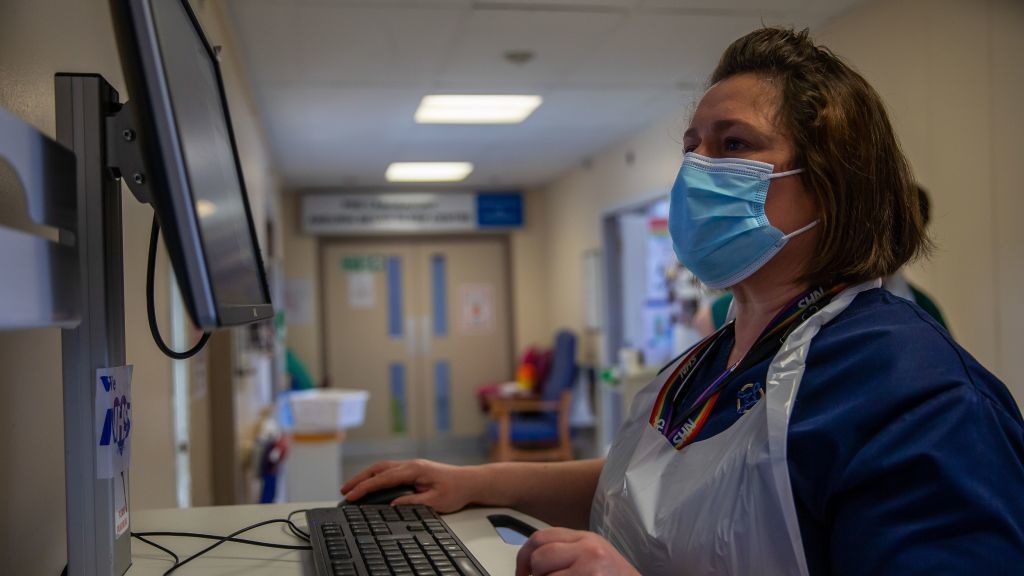CSC outlines plans to trim UK headcount
NHS IT provider announces that up to 640 UK jobs could be lost, as 90-day staff consultation period starts.
IT provider CSC could lay off up to 640 UK staff, as discussions about its involvement in the future of the NHS IT project rumble on.
The company confirmed in a statement to IT Pro that it has entered into a 90-day consulting period with staff, and said compulsory redundancies will be avoided where possible.
"Through voluntary redundancies and redeploying people within other parts of the business, we hope to achieve a significant reduction without the need for compulsory redundancies," said the company in a statement.
"Where this is not possible, we will provide support to ensure that anyone leaving the business does so in the best possible position."
The firm said the move was a reaction to the changing IT services market. "Our customers want competitive, new services with different contract and delivery models," it added.
We owe it to our members to do everything in our power to support them and fight these job cuts
In a further statement, trade union Unite said news of the cuts had left CSC's staff "absolutely devastated". It also claimed the move would mean that a total of 1,100 jobs had been axed by the firm since February.
Sign up today and you will receive a free copy of our Future Focus 2025 report - the leading guidance on AI, cybersecurity and other IT challenges as per 700+ senior executives
Unite members from CSC's Chesterfield, Chorley, Leeds and Solihull sites took part in lunchtime protests last week, claiming the firm had ignored the trade body's advice on how to avoid compulsory redundancies.
In a statement, Kevin O'Gallagher, Unite National Officer, claimed CSC was pursuing compulsory redundancies to appease its US shareholders.
"We put forward a detailed plan which will avoid any compulsory redundancies in the company. However, these plans have not been taken up and CSC is insistent on issuing redundancy notices, despite receiving a sufficient number of volunteer requests to leave the company," he said.
"We now owe it to our members to do everything in our power to support them during this very uncertain time and fight these job cuts."
Earlier this month, IT Pro reported that CSC was facing a time of uncertainty, after it confirmed no decision had been made about its continued involvement in the rollout of the NHS patient care records systems.
-
 Motorola's new premium smartphone is a melting pot of camera innovation
Motorola's new premium smartphone is a melting pot of camera innovationNews The Signature has been built in collaboration with Sony, Qualcomm, and Instagram, and has four 50MP camera lenses
-
 Lenovo reveals slick rollable screen concept at CES 2026
Lenovo reveals slick rollable screen concept at CES 2026News The ThinkPad XD is impressive, but the ThinkBook Gen 7 Auto Twist will have us knocking our laptops open
-
 NHS leaders are keen to adopt new digital tools, but IT can't solve problems on its own
NHS leaders are keen to adopt new digital tools, but IT can't solve problems on its ownA survey of healthcare decision-makers finds they believe IoT devices and electronic health recording could help them reach more patients quicker
-
 How a paperless approach cut wasted staff hours at Bradford Teaching Hospitals Trust
How a paperless approach cut wasted staff hours at Bradford Teaching Hospitals TrustCase study Through DrDoctor’s digital portal for patient appointments and advice, the Rheumatology team at Bradford Teaching Hospitals NHS Foundation Trust has dramatically cut
-
 Healthcare’s next chapter
Healthcare’s next chapterwhitepaper Revolutionizing how you care with EPR experts you can trust
-
 How digital experience management helped an NHS trust improve productivity
How digital experience management helped an NHS trust improve productivityCase study Princess Alexandra Hospital NHS Trust used digital experience management to cut device failure and restore time to clinicians
-
 Will the NHS Federated Data Platform transform UK healthcare?
Will the NHS Federated Data Platform transform UK healthcare?In-depth Plans to create a data platform in partnership with the private sector could revolutionize NHS treatment, but concerns over data privacy and security are festering
-
 NHS IT issues costing doctors more than 13 million hours annually
NHS IT issues costing doctors more than 13 million hours annuallyNews Doctors warn that ageing IT infrastructure is impacting patient care and clinical outcomes
-
 Automation is helping the NHS clear its patient backlog, but not as quickly as expected
Automation is helping the NHS clear its patient backlog, but not as quickly as expectedAnalysis The healthcare service's big bet on robotic process automation is making 'impactful' but slow progress
-
 DHSC sets out ambitious targets for NHS App by 2023, beyond
DHSC sets out ambitious targets for NHS App by 2023, beyondNews Ongoing NHS digitisation efforts will form backbone of the new system